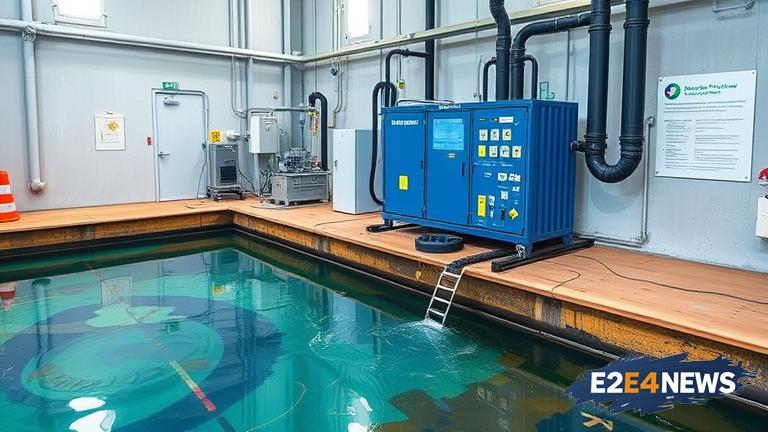The UK Health Security Agency (UKHSA) has unveiled a pioneering wastewater monitoring system designed to identify early indicators of infectious diseases, thereby bolstering the nation’s public health defenses. This innovative approach leverages advanced technologies to analyze wastewater samples for the presence of pathogens, enabling swift detection and response to potential outbreaks. By monitoring wastewater, health officials can gain valuable insights into the prevalence and spread of diseases within communities, facilitating targeted interventions and mitigating the risk of widespread transmission. The UKHSA’s wastewater monitoring system is part of a broader strategy to enhance the country’s disease surveillance capabilities, ensuring that public health agencies are equipped to respond rapidly and effectively to emerging threats. The system’s implementation is a testament to the UK’s commitment to harnessing cutting-edge technologies to safeguard public health. The wastewater monitoring system is expected to play a critical role in the early detection of infectious diseases, including COVID-19, influenza, and other respiratory viruses. By analyzing wastewater samples, scientists can identify the genetic material of pathogens, allowing for the prompt identification of disease hotspots and the implementation of targeted control measures. The UKHSA’s system is designed to provide real-time data, enabling health officials to respond quickly to changes in disease trends and patterns. The agency’s experts will work closely with local authorities, healthcare providers, and other stakeholders to ensure that the wastewater monitoring system is integrated into existing public health frameworks. The introduction of this system underscores the importance of collaboration and data-sharing in the pursuit of enhanced public health outcomes. The UKHSA’s wastewater monitoring system has the potential to revolutionize the way diseases are detected and managed, providing a powerful tool for health officials to protect vulnerable populations and prevent outbreaks. The system’s development is a significant milestone in the UK’s ongoing efforts to strengthen its public health infrastructure, ensuring that the country remains at the forefront of infectious disease surveillance and response. As the UKHSA continues to refine and expand its wastewater monitoring system, it is likely to serve as a model for other countries seeking to enhance their disease detection capabilities. The agency’s commitment to innovation and collaboration has yielded a groundbreaking system that will undoubtedly contribute to improved public health outcomes in the UK and beyond. The wastewater monitoring system is a prime example of how cutting-edge technologies can be harnessed to address pressing public health challenges, and its implementation is a significant step forward in the pursuit of a healthier, safer future. The UKHSA’s experts will continue to work tirelessly to optimize the system, ensuring that it remains a vital component of the country’s public health arsenal. As the system evolves, it is likely to incorporate new technologies and methodologies, further enhancing its capabilities and effectiveness. The UKHSA’s wastewater monitoring system is a powerful reminder of the importance of investing in public health infrastructure, and its introduction is a testament to the UK’s dedication to protecting the health and wellbeing of its citizens. The system’s impact will be closely monitored, and its findings will inform evidence-based policies and interventions aimed at mitigating the spread of infectious diseases. By providing early warnings of potential outbreaks, the wastewater monitoring system will enable health officials to take proactive measures to prevent the spread of disease, thereby reducing the burden on healthcare systems and minimizing the risk of widespread transmission. The UKHSA’s innovative approach to disease surveillance has the potential to save lives, and its wastewater monitoring system is a significant step forward in the pursuit of enhanced public health protection.
